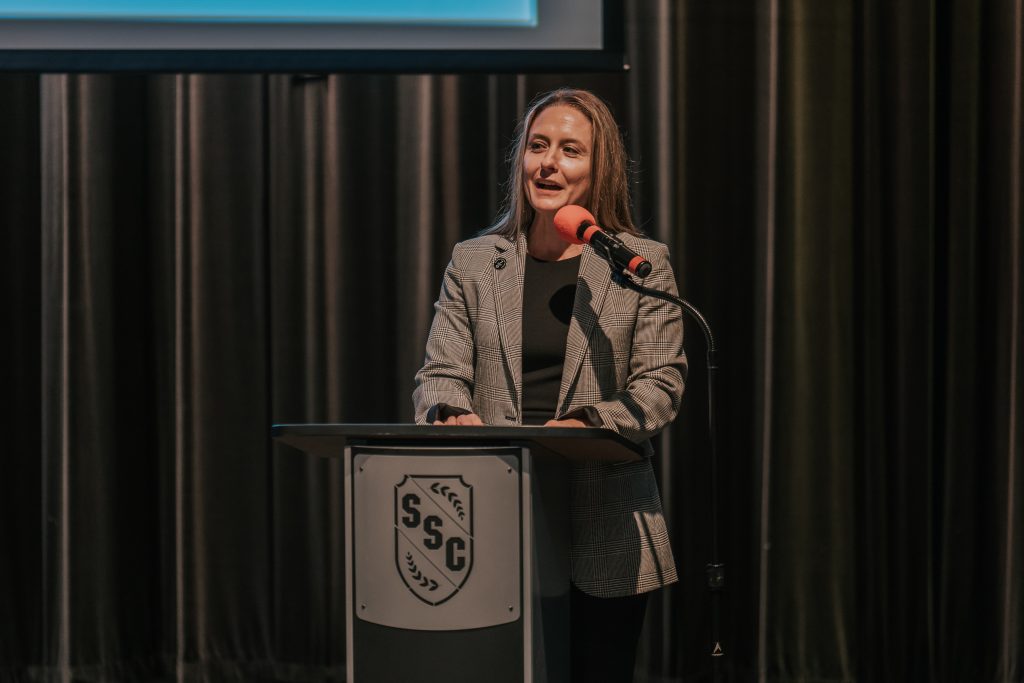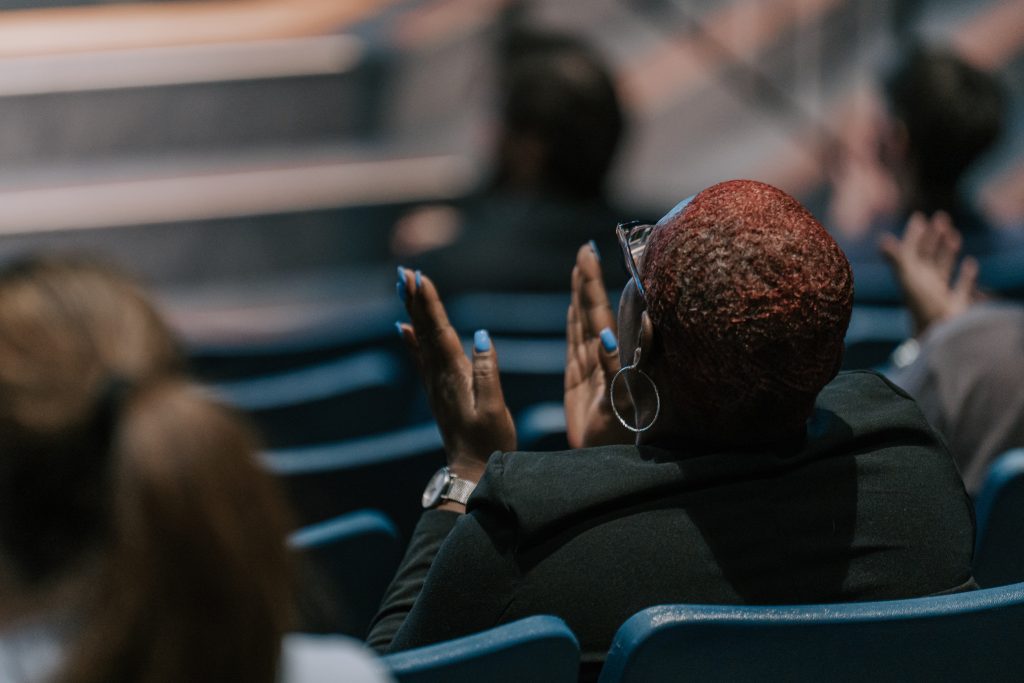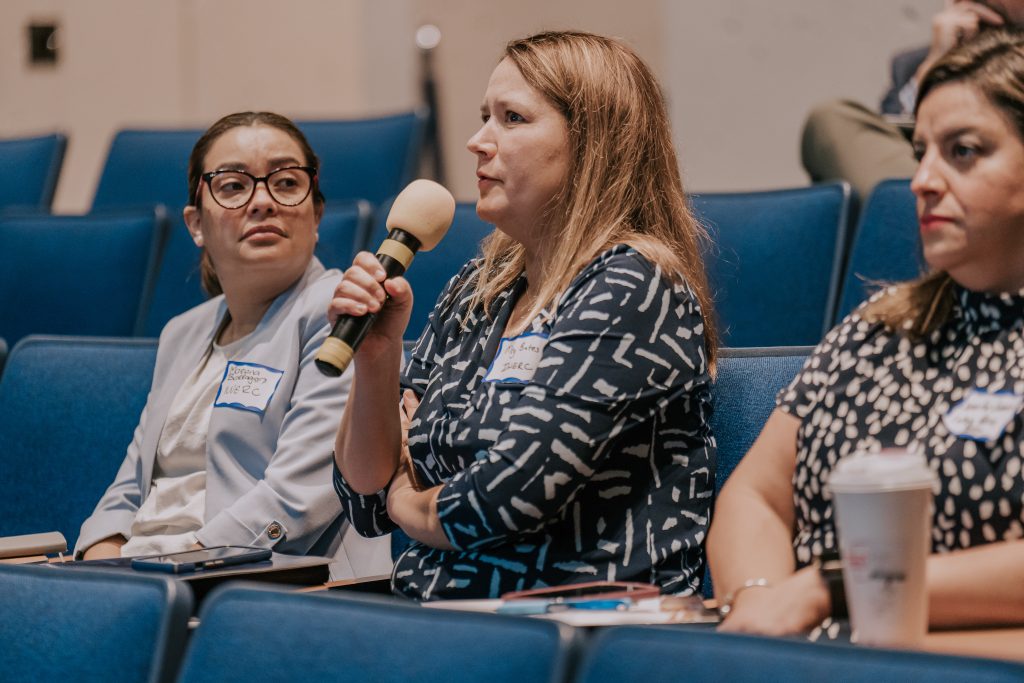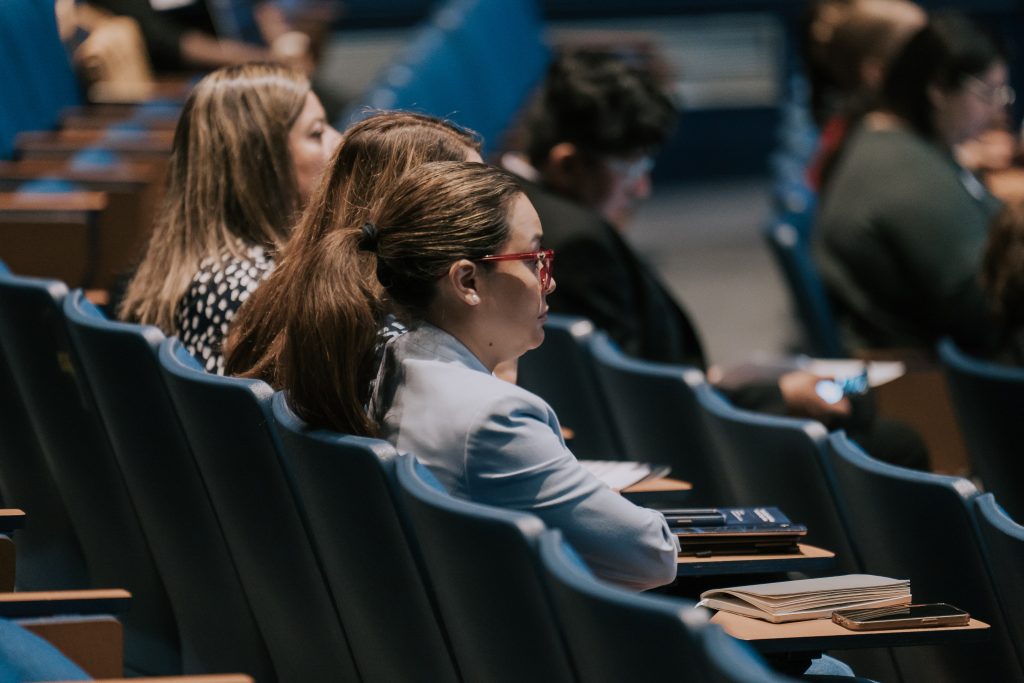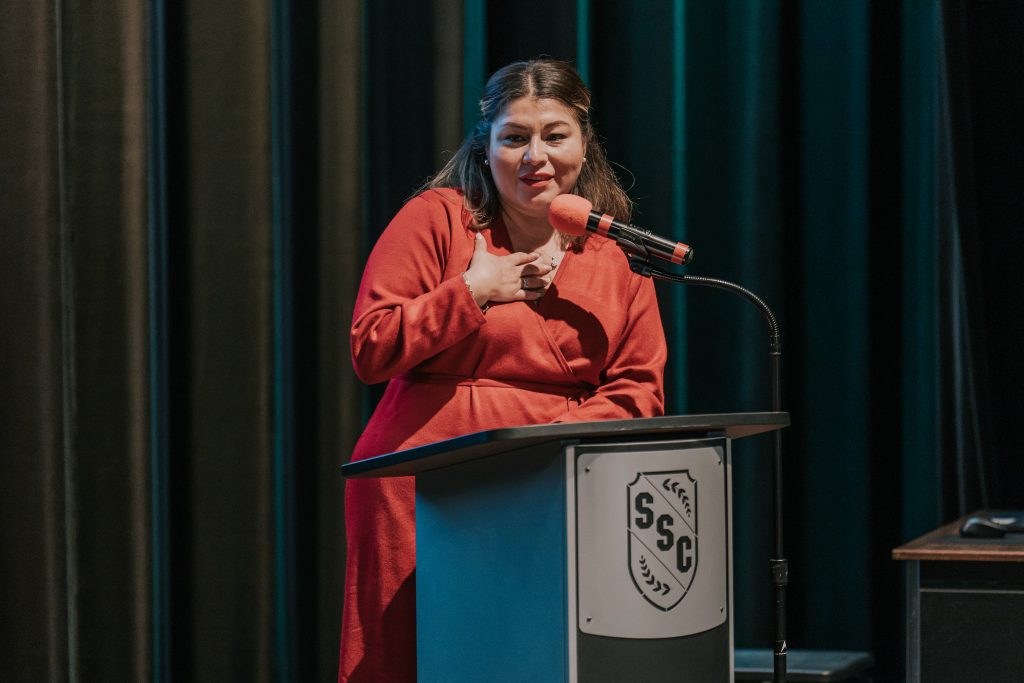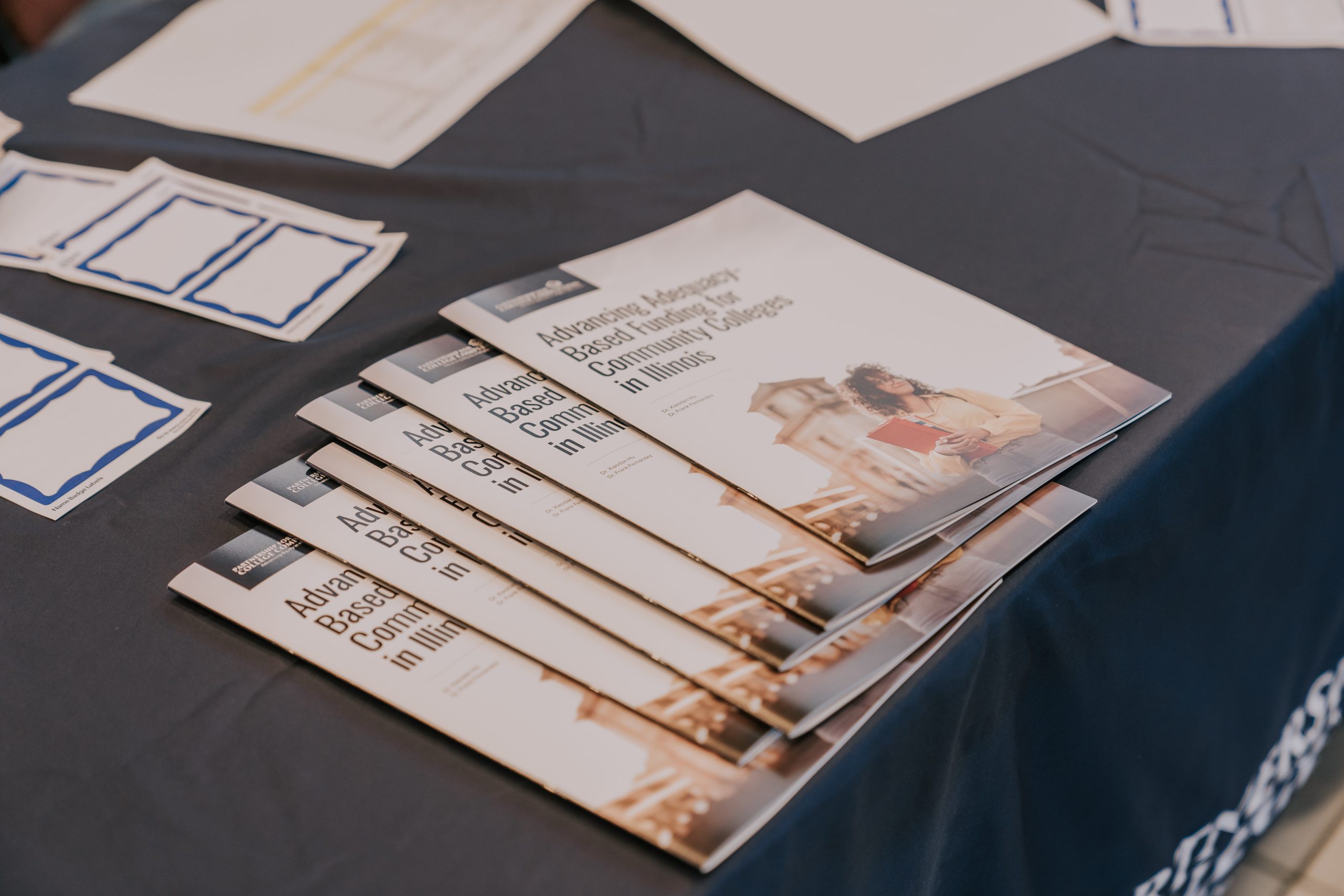The Partnership for College Completion hosted an engaging and important discussion about its latest report, Advancing Adequacy-Based Funding for Community Colleges in Illinois, on Wednesday, Sept. 25, at South Suburban College.
The report focuses on the funding deficit of Illinois’ community college system and suggests new pathways to ensure these institutions have the resources they need for students. The event presented the origins and details of the report, then two panels that added the first-hand perspective of attending and working at a community college.
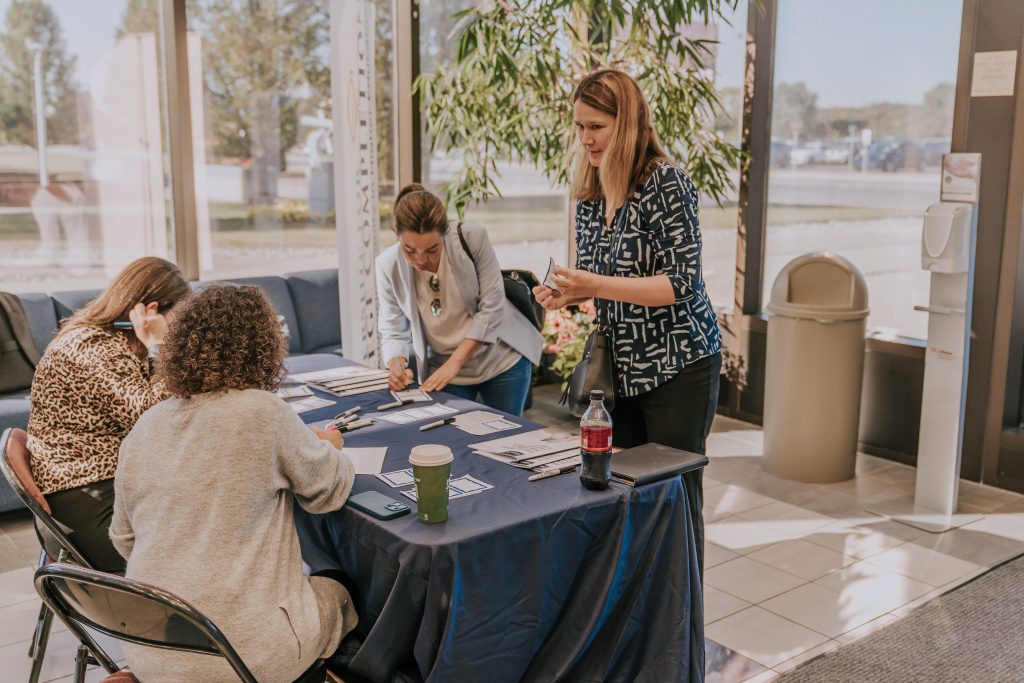
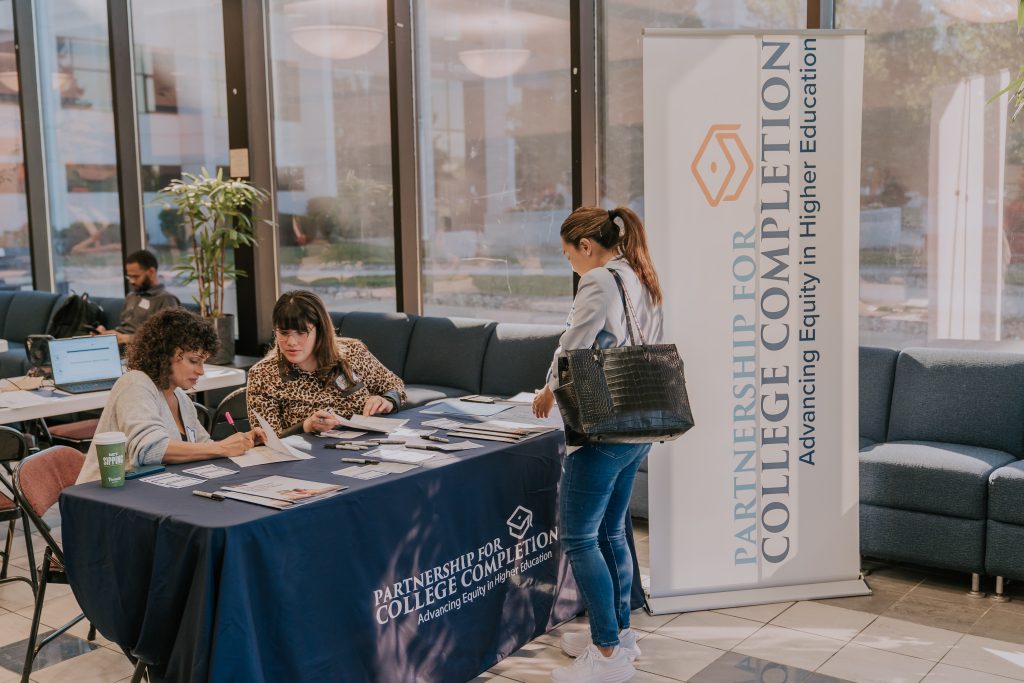
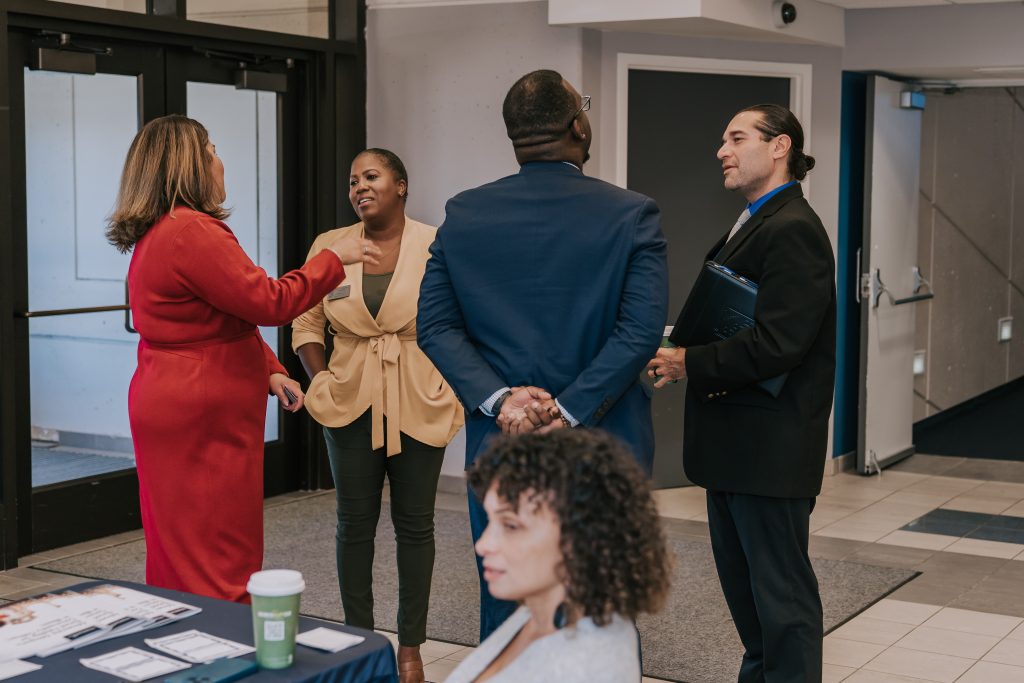
PCC Executive Director Dr. Lisa Castillo Richmond set the tone for the day noting the crucial role Illinois community colleges play in the higher education ecosystem. “Community colleges provide a critical entry point for college-bound students,” Castillo Richmond said. “They are also proven to serve more students of color, more underserved and underrepresented communities, more adult learners, and more returning learners.”
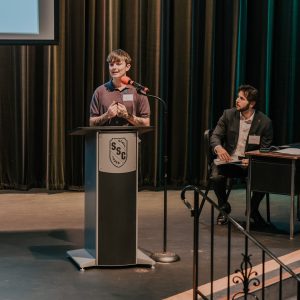
PCC’s Senior Manager of Research and Policy Mike Abrahamson and Policy Analyst Caitlin Power assisted the report’s authors, Dr. Xiaodan Hu and Dr. Frank Fernadez, in its development. Abrahamson noted that, “what hasn’t been talked about in the public university funding discussion is community college funding. The Illinois Community College Board taskforce and this report will be a further catalyst explaining why funding is so essential and how we can turn it around.”
Power also gave historical context in the relationship between the state and community colleges.
“Before, there was a one-third share between the state, tuition, and taxes to fund community colleges. Now, the state has abdicated its role in funding community colleges, shifting the cost onto students and families,” Power explained. “Additionally, underfunding has created a perverse incentive for schools to place students in developmental education courses that needlessly extends time in school and raises the cost burden on students.”


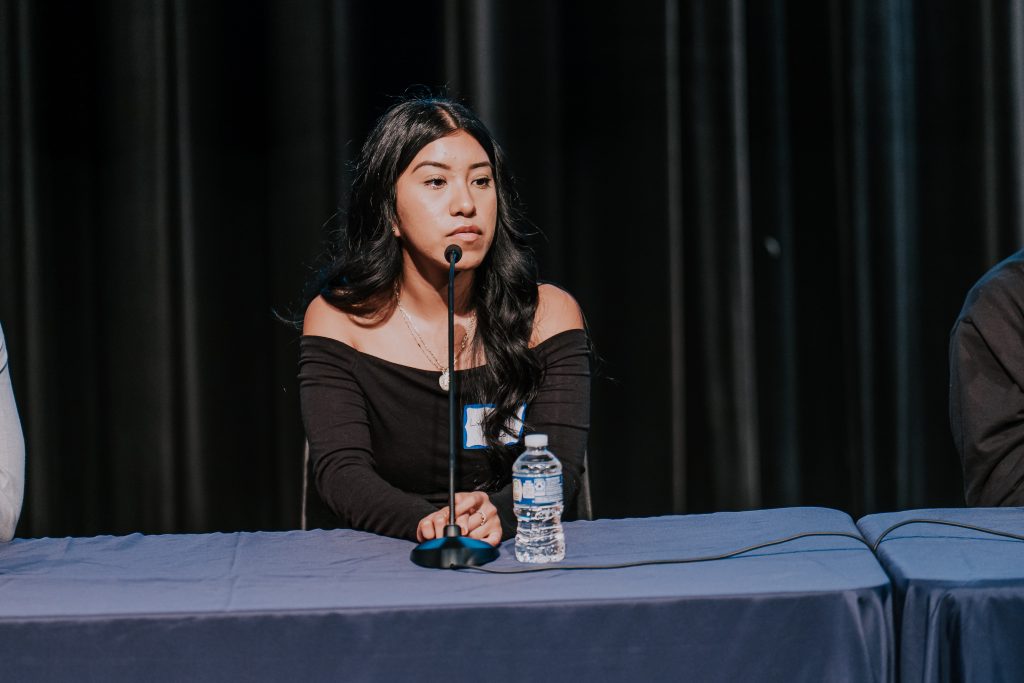

The first panel to drive home the need for proper community college funding was composed of three students who attend or have attended an Illinois community college. Salvador Delgado shared his story on how Harold Washington Community College helped reestablish himself while facing adversity.
“I went away to a four-year institution and dropped out. I had to reestablish myself, while also facing housing insecurity, being a non-traditional student and being first generation,” Delgado shared. “Community college helped me find resources and departments to get me through those struggles.”
Delgado also offered up a resounding review of the community college experience. “Community colleges are the underdogs of education. It prepares folks like us to get acclimated to higher education. Coming from a predominantly white institution, I felt more supported. I felt like I belonged, and I succeeded academically. I was able to connect with professors and students, and I saw people who looked like me. Socially and academically, community college was better for me.”
Lizbeth Atenco, a student trustee at South Suburban College, echoed Delgado’s first-gen experience and sense of belonging at her institution. “I didn’t have anyone to look up to (as a first-generation student), so the transition from high school to college was difficult,” Atenco said. “At South Suburban, seeing myself getting involved, I surprised myself.”
She also highlighted the need for funding to properly fund the services students need on campuses.
“The challenges would be the services like financial aid and counseling. You don’t know what you’re getting into or what they’re saying,” said Atenco. “There needs to be better training for those advisors to better communicate with their students. But for there to be training, there needs to be funding.”
Amelie Pineda, a pharmacy student at Harper College seconded Atenco’s call for funding for better training, specifically for academic advising.
“If services were properly funded, I would like to see it go to academic advisors. My peers sometimes struggle with advising, as they say one thing but the website says another. You have to be your own advisor sometimes.”
Despite the underfunded challenges, Pineda also notes that community college allowed her to explore her interests before settling into her primary major.
“When I mentioned I wanted to go the community college route, kids in high school looked down on me. I’m going for free so I don’t care,” she said. “When I went to Harper I was able to try a variety of different courses and was able to look at what I wanted to do and how to get there.”

This panel was moderated by PCC’s Dr. Lisa Castillo Richmond.
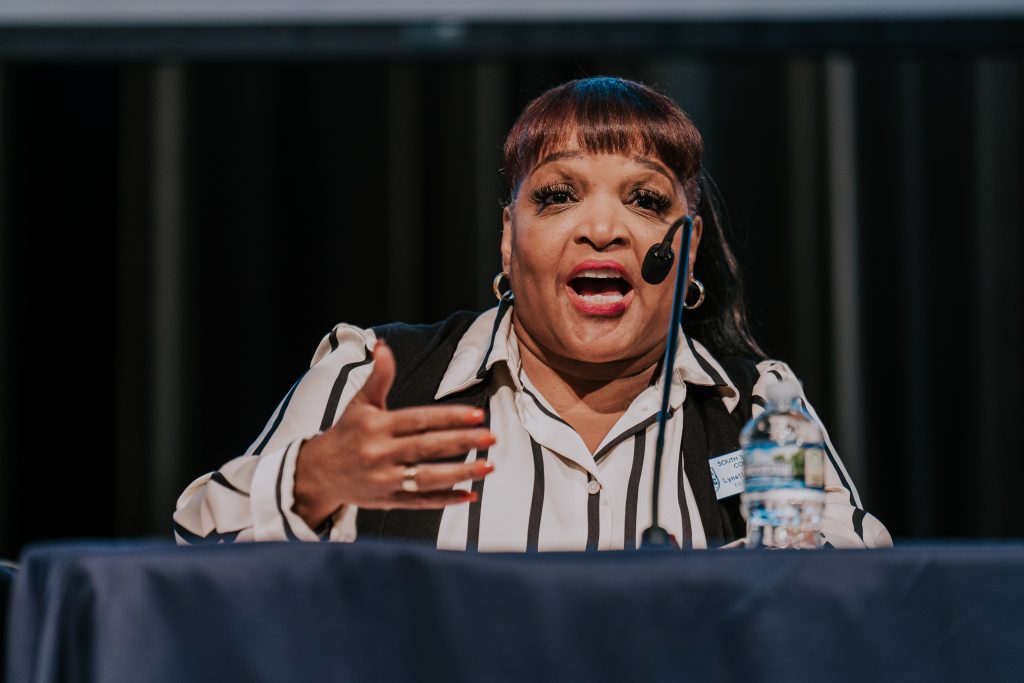
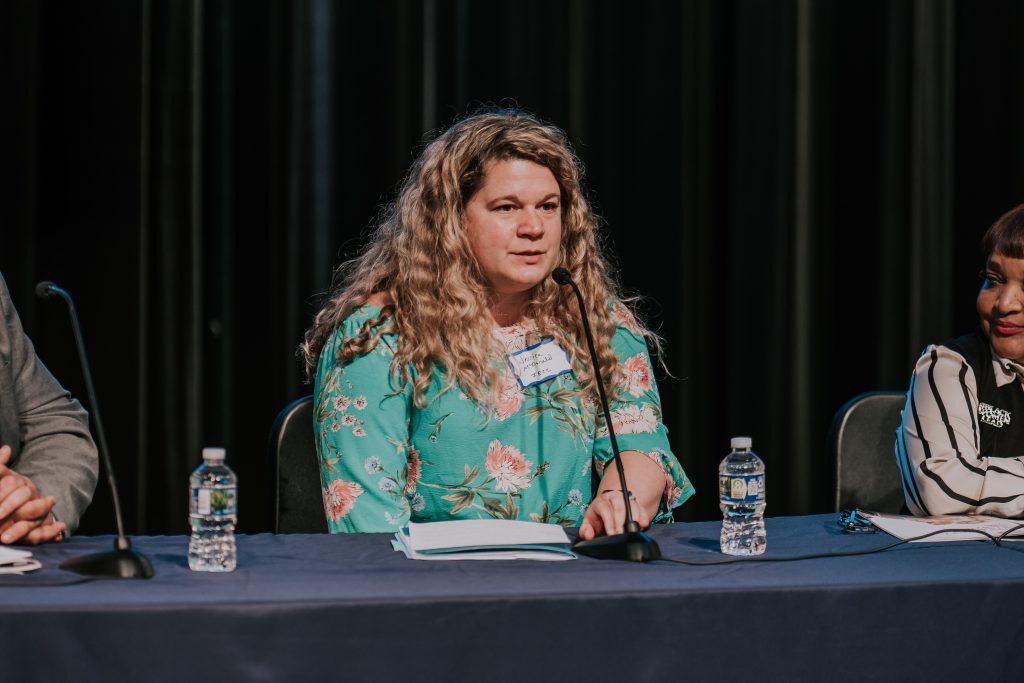
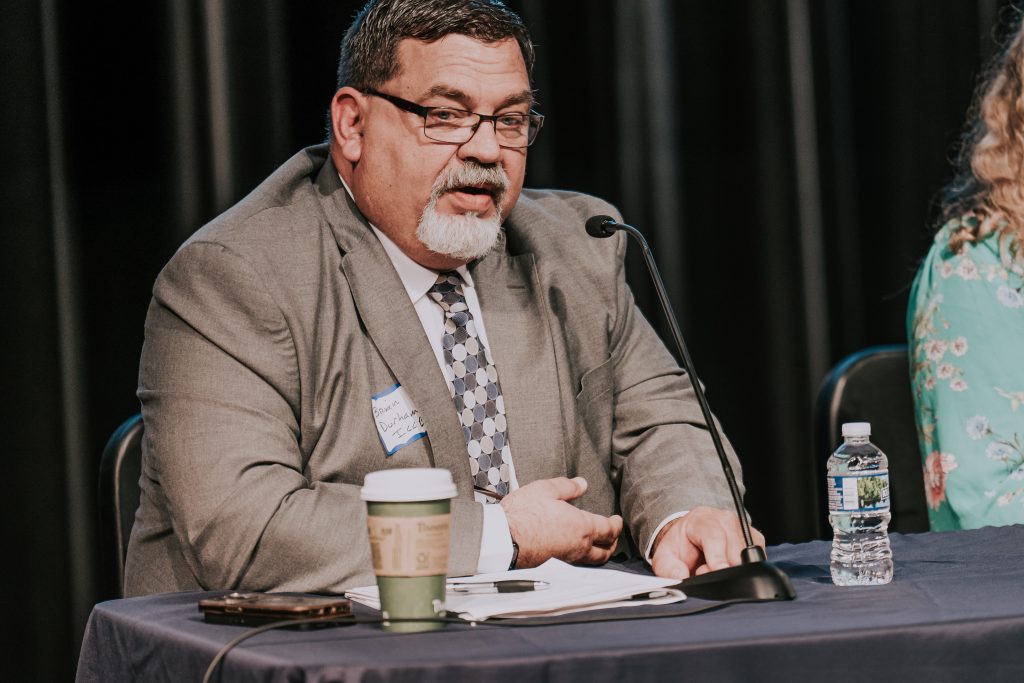
The next panel consisted of college stakeholders closely involved with leading, teaching at or overseeing Illinois community colleges. The panelists were:
- Dr. Lynette Stokes, President at South Suburban College
- Dr. Brian Durham, Executive Director of ICCB
- Professor Jessica McDonald, Speech and Communication Instructor at Olney Central College
Highlights of the college stakeholder panel
Dr. Lynette Stokes on:
- Why community colleges are important: I am the first African American to hold South Suburban College president office. It took us 91 years to get here. I understand the value of an education. I lived in 10 different foster homes. My past didn’t have to define my future and I knew education would be my way to a better life.
- How did we get here and how do we get out: This has been an ongoing dialogue on how we got here. While we’re underfunded, there is a lack of truly understanding the value of a community college education and the role we play in economic viability in our communities and in the state. The stigma of a community college education has been perpetuated by the disinvestment at the state level. Forums and platforms like this are opportunities to have those uncomfortable conversations for those underrepresented communities. There is not a one-size-fits-all formula; we have to embrace the uniqueness of each institution and each student’s pathways.
- Reversing enrollment trends: We need to recommend community college as a first choice not last resort! Community colleges also need to align with workforce demands that are employing our students. We are teaching them the knowledge and skills necessary to be competitive. We need to listen to our community. What is applicable in the Southland area aren’t the same needs as the north. We need stronger partnerships with local high schools and community organizations to create clear pathways to the workforce. Community colleges are also pathways to a four-year institution.
Dr. Brian Durham on:
- Why community colleges are important: I grew up in Indiana that didn’t have a community college system. My dad had an eighth grade education; my mom earned her GED at 35 years old. Man, I wish there was a community college system when I was going through my undergraduate experience. The way community colleges have stepped up and adapted is a testament to how important they are to society.
- How did we get here and how do we get out: The report hits on a lot of these issues, such as historic deficits, the budget impasse, and the pandemic. As the economy gets worse, you see enrollment go up. But since the Great Recession, you haven’t seen that. It’s now a debate between the public and private good of higher education, and community colleges get caught up in how expensive college is. That conversation doesn’t differentiate between a two-year and a four-year institution.
Professor Jessica McDonald on:
- Why community colleges are important: I teach at Olney Community College. My dad is a graduate of community college. My husband is a graduate of community college. There is such a deep connection to the community. The first theater show I participated in was at a community college and there was incredible support for that theater. You can have those conversations with kids in a non-academic, accessible setting, and that helps them learn the terminology well before they get to college.
- How did we get here and how do we get out: It has been the politicizing of education. Parents are not sending their students because of the “agenda” being pushed. We’re also not preparing for non-traditional students, which is necessary. We’re not using funds efficiently for non-traditional space to safeguard against underfunding that’s happening. We have to partner with organizations and companies; shake up the status quo and people that you can get an education AND a job. Community colleges set you up for the career you want and the life you want to lead in a state where you want to stay.
- The community college hook: Students go where they are successful and we need the funding to create that environment. It takes training. Students are coming in with different needs and we need to support libraries, tutoring, and mental health services. Additionally, we need to make it so people can and want to work at a community college and not have to take a $30,000 pay cut to work there.
